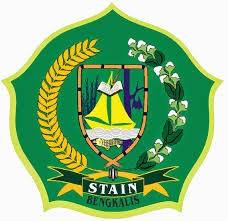An Evaluation of MIKiR Learning in English Subject
DOI:
https://doi.org/10.56633/kaisa.v1i1.185Keywords:
evaluation, MIKiR learning, CIPP (context, input, process, and product)Abstract
This paper aims to evaluate English learning on the components of the context, input, process, and product. This research is an evaluation research. Data were collected by observation, interview, and documentation then analyzed descriptively. The conclusions in this paper: 1) the value of the context of the initial condition of the institution is sufficient, the value of the input of the sub-components of facilities and infrastructure, sufficient teaching staff and curriculum, the value of the process of the planning and implementation of English learning is lacking, and the value of the product component on student learning outcomes; and 2) the recommendation of this paper, the head of the institution needs to review or change the implementation of the institution's curriculum for reform for a better direction, provided there are many English textbooks, teachers must make lesson plans based on the syllabus of competency units.
Artikel ini bertujuan untuk mengevaluasi pembelajaran bahasa Inggris pada komponen context, input, process, dan product. Penelitian ini merupakan penelitian evaluasi. Pengumpulan data dilakukan dengan observasi, wawancara, dan dokumentasi kemudian dianalisis secara deskriptif. Kesimpulan dalam artikel ini: 1) nilai context untuk kondisi lembaga sudah cukup, nilai input untuk sarana dan prasarana, tenaga pengajar dan kurikulum memadai, nilai process untuk pembelajaran perencanaan dan pelaksanaan pembelajaran bahasa Inggris kurang, dan nilai komponen product terhadap hasil belajar siswa sudah cukup, dan 2) atas rekomendasi artikel ini, pimpinan lembaga perlu mengkaji ulang atau merubah implementasi kurikulum lembaga untuk reformasi ke arah yang lebih baik, dengan syarat buku teks bahasa Inggris yang banyak, guru harus membuat RPP berdasarkan unit kompetensi silabus.
References
Alderson, J C, C Clapham, and D Wall. “Language Test Construction and Evaluation.” Cambridge Language Teaching Library, 1995.
Bryson, Colin. “Engagement through Partnership: Students as Partners in Learning and Teaching in Higher Education.” International Journal for Academic Development (2016).
Creswell, JW. “Qualitative, Quantitative, and Mixed Methods Approaches.” In Research Design, 2013.
D’Arcy Nell, Dawn. “English Language Teaching.” In History of Oxford University Press: Volume IV 1970 to 2004, 2017.
Gravestock, Pamela, and Emily Gregor-Greenleaf. “Student Course Evaluations: Research, Models and Trends.” Toronto: Higher Education Quality Council of Ontario (2008).
Handayani, Sri. “Pentingnya Kemampuan Berbahasa Inggris Sebagai dalam Menyongsong Asean Community 2015.” Jurnal Profesi Pendidik (2016).
Kassim, Mustapha Kamal Ahmad, Zahiah Haris Harith, Abdullah Yusof, Aizan Ali Mat Zin, Faisal Ahmad Faisal Abdul Hamid, and Nurulwahidah Fauzi. “The Role of Islamic Civilization in Teacher’s Training Institute Malaysia (IPGM) towards Developing Teachers’ Human Capital.” Middle East Journal of Scientific Research (2013).
Panggabean, Himpun. “Problematic Approach to English Learning and Teaching: A Case in Indonesia.” English Language Teaching (2015).
Spiel, Christiane, Barbara Schober, and Evelyn Bergsmann. “Program Evaluation.” In International Encyclopedia of the Social & Behavioral Sciences: Second Edition, 2015.
Stufflebeam, Daniel L., and Chris L. S. Coryn. “Daniel Stufflebeam’s CIPP Model for Evaluation: An Improvement and Accountability Oriented Approach.” In Evaluation Theory, Models, and Applications, 2014.
Tanoto Foundation, Tim Pintar. “Praktik Yang Baik Dalam Manajmen Berbasis Sekolah.” Tanoto Foundation. Jakarta: Tanoto Foundation, 2019.
Ulum, Miftahul. “Kebijakan Standar Nasional Pendidikan.” Syaikhuna: Jurnal Pendidikan dan Pranata Islam (2020).
Downloads
Published
Issue
Section
License
Copyright (c) 2021 Ruzaini Ruzaini

This work is licensed under a Creative Commons Attribution-NonCommercial-ShareAlike 4.0 International License.

Authors who publish with Kaisa: Jurnal Pendidikan dan Pembelajaran agree to the following terms:
- Authors retain copyright and grant the journal right of first publication with the work simultaneously licensed under a Creative Commons Attribution-NonCommercial-ShareAlike 4.0 International License (CC BY-NC-SA 4.0) that allows others to share the work with an acknowledgment of the work's authorship and initial publication in this journal.
- Authors are able to enter into separate, additional contractual arrangements for the non-exclusive distribution of the journal's published version of the work (e.g., post it to an institutional repository or publish it in a book), with an acknowledgment of its initial publication in this journal.
- Authors are permitted and encouraged to post their work online (e.g., in institutional repositories or on their website) prior to and during the submission process, as it can lead to productive exchanges, as well as earlier and greater citation of published work (See The Effect of Open Access).








